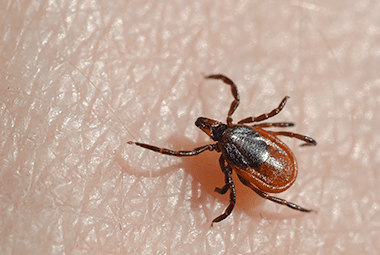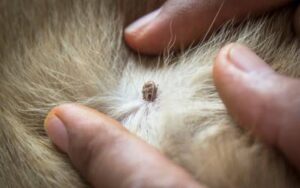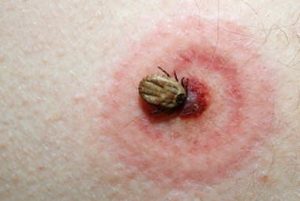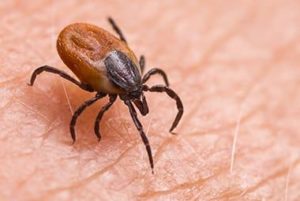
Tennessee is a beautiful place to spend time outdoors! When the weather is nice, it makes sense to enjoy everything that nature has to offer. Whether that’s relaxing with a book in your own backyard, visiting your favorite swimming hole, or hitting the trails for an enjoyable hike, it just feels good to be outside!
Unfortunately, there is one reason that spending time outdoors is a bit more dangerous than it used to be. In recent years, there has been a steep rise in the population of blacklegged ticks, and with this increase also comes the increased risk of contracting some serious diseases.
Blacklegged ticks, also known as deer ticks, are well-known in the Northeast; in fact, Lyme disease was named after a town in Connecticut! However, they don’t only live in the Northeastern states. Blacklegged ticks are a pest that Tennessee residents need to be aware of and take precautions against while spending time outdoors.
Ticks can’t fly, but that doesn’t mean that they stay in one area; instead, these pests hitch rides on wild animals, which means that they can travel relatively long distances and end up anywhere that rodents, deer, and other wild animals travel, including in your yard!
When you and your pets are spending time outdoors, ticks will wait for you to brush past them as you walk; they will then grab on with their front legs and crawl to a warm place on you or your pet and embed themselves into the skin in order to feed.
Diseases That Blacklegged Ticks Carry
While there are many diseases that ticks can transmit, the most well-known one is Lyme disease. Like most tick-borne illnesses, Lyme is transmitted after an infected tick is attached to the skin for at least 24 hours. This is why performing frequent and thorough tick checks after spending time outdoors is essential in preventing tick-borne illnesses.
It is possible to have a tick embed, feed, and release itself from you without you ever noticing, so just because you didn’t see a tick doesn’t mean you haven’t been bitten! While adult blacklegged ticks are about the size of a sesame seed and are relatively easy to see if you’re looking for them, the nymphs are extremely tiny and must be carefully searched for.
If you have been infected with Lyme disease, symptoms can start to show anywhere from 3 to 30 days after being bitten. The most obvious symptom is the distinct bullseye rash around the area of the bite. However, not everyone who contracts Lyme disease will develop this rash.
Other early symptoms of Lyme mimic the symptoms of the flu. You may contract a fever, feel lethargic and achy, and have a headache. If you develop these symptoms when it isn’t flu season or when you haven’t been around anyone who was sick recently, consider going to the doctor to be tested. When caught early enough, Lyme disease is treatable with a heavy duty dose of antibiotics.
If not caught early, Lyme can cause significant long-term problems. Undetected Lyme disease can cause joint pain and neurological problems, including impaired muscle movement, swelling of the membranes around your brain, limb numbness, and more.
Other tick-borne illnesses spread by blacklegged ticks include babesiosis, anaplasmosis or ehrlichiosis, and Powassan virus.
How to Prevent Tick Bites
As mentioned earlier, checking yourself, your family members, and your pets after spending time outside is very important. However, this is not the only way to protect yourself from tick-borne diseases. Other important preventions to follow are:
- Keeping up-to-date on tick treatments for your pets.
- Keeping your lawn well-trimmed as ticks like to live in areas of tall grass.
- Keeping your lawn free of leaf litter and tree debris where ticks often hide.
- Wearing light-colored long sleeve shirts and pants when walking in the woods. Wearing light-colored clothing makes it easier to see any ticks that have crawled on you.
- Wearing tick repellant with DEET when spending time outdoors. DEET is currently the most effective bug spray at keeping ticks and other pests away from you.
- Getting your property treated by professionals.
Because they travel on other animals, ticks are impossible to completely eliminate from your property. However, by taking the precautions listed above including contacting the experts at Russell’s Pest Control, it is possible to manage the tick populations on your property and give yourself some peace of mind when spending time in your backyard. Russell’s tick control is a seasonal service that is administered between April and September which is when ticks are the most active. Call us today for a free estimate!
Dangers Blacklegged Ticks Pose To Tennessee Residents And Pets in Knoxville TN
Serving East Tennessee since 1971




